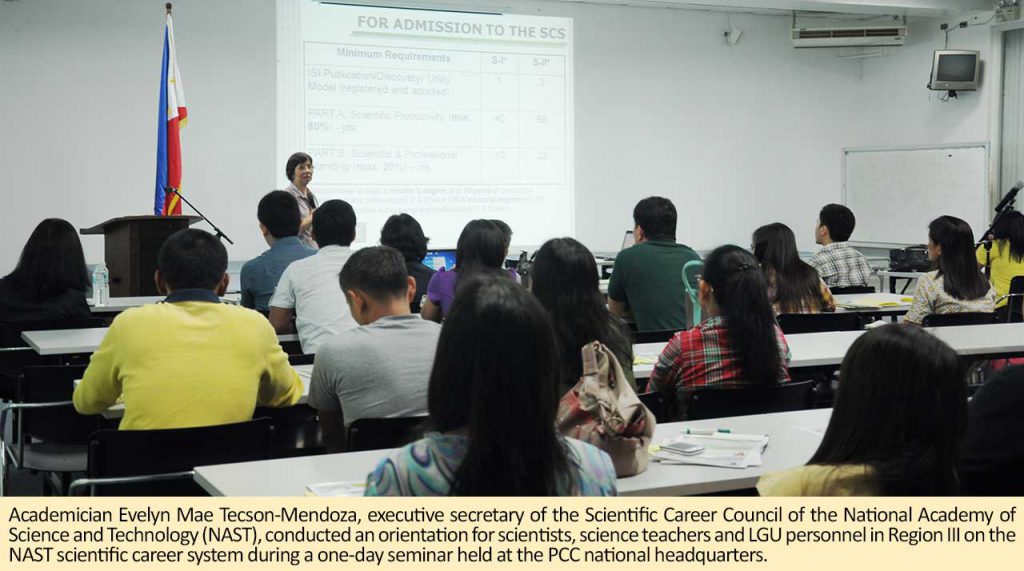Scientists and other technical staff of the Philippine Carabao Center (PCC) participated in a one-day seminar organized by the National Academy of Science and Technology, Philippines (NAST PHL) as part of its Science Seminar Series in Region III (Central Luzon).
Held on September 3, the activity was co-sponsored by PCC along with the Philippine Rice Research Institute (PhilRice) and the Department of Science and Technology (DOST).
The seminar topics discussed were “Capability-Building and Sustainable Biotechnology Information, Education and Communication for DOST and LGU Key Personnel,” “Orientation on Scientific Career System,” and “Ethical Standards for Researchers and Scientists for RDIs (research and development institutes) and SUCs (state colleges and universities).”
The speakers included Academician Evelyn Mae Tecson-Mendoza, professor emeritus of the University of the Philippines Los Baños (UPLB) and executive secretary of NAST’s Scientific Career Council; Dr. Leslie Michelle Dalmacio, professor at UP-Manila; Dr. Apolinario Yambot, professor at the Central Luzon State University (CLSU); and Dr. Lerma C. Ocampo, senior science research specialist at PCC.
Wilfredo Sibal, technical services division chief of DOST-Region III, served as moderator of the open forum.
In her talk on the scientific career system, Mendoza, who is also NAST PHL secretary, focused on salient points of the merit system, and the qualifications and requirements in becoming a scientist as well as the benefits and incentives for scientists prescribed by the NAST.
“This orientation primarily aims to introduce the guidelines on the entrance to and/or conferment of rank in the Scientific Career System for anyone who aspires to become a scientist,” said Mendoza.
On the other hand, application, products, issues and concerns, including animal biotechnology were highlighted in the topic “Capability Building and Sustainable Biotechnology.”
Dexter Bautista of NAST said that the items discussed under this topic were relevant in raising awareness among the participants about modern biotechnology so that in return, when there are new technologies that come out which, among others, result in GMO products such as the BT corn, Golden Rice and others, the public can, in turn, be properly informed.
He added that this would hopefully address the public’s concern regarding the safety of GMO products commercially released for human consumption.
With regard to “Ethical Standards for Researchers and Scientists for RDI’s and SUCs”, Dr. Mendoza presented ethical principles and guidelines for Filipino scientists and researchers who conduct scientific researches or are involved in scientific work.
These principles and guidelines include the ethical use of science in Philippine society; conflict of interest; intellectual honesty; weighing the benefits of science vis-à-vis potential harm; commitment to professional development as scientists; development of students and other stakeholders; and the advocacy for scientific approaches.
Aside from the PCC staff, the one-day affair held at the PCC National Headquarters was also attended by scientists, science teachers and trainers and some local government unit (LGU) personnel from different parts of Region III.

